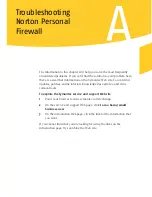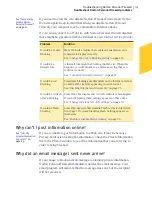
About the Internet
How information is transmitted over the Internet
119
The Internet is a
packet switching network
. Every communication is broken
into
packets
by TCP (Transmission Control Protocol). Each packet contains
the addresses of the sending and receiving computers along with the
information to be communicated.
IP (Internet Protocol)
is responsible for routing the packets to their
destinations. Each packet may take a different route across the Internet,
and packets may be broken up into
fragments
. Packets travel across the
Internet, moving from one
router
to another. Routers look at the destination
address and forward the packet to the next router. IP does not guarantee
the delivery of every packet.
On the destination computer, TCP joins the packets into the complete
communication. TCP may have to reorder the packets if they are received
out of order, and it may have to reassemble fragmented packets. TCP
requests retransmission of missing packets.
TCP/IP is often used to refer to a group of protocols used on the Internet,
including UDP (User Datagram Protocol), ICMP (Internet Control Message
Protocol), and IGMP (Internet Group Membership Protocol).
Router
Router
Router
Router
Router
Router
Router
Sending
computer
Receiving
computer
Routes that a packet or fragments of a packet may take
Summary of Contents for Norton Personal Firewall 2003
Page 1: ...User s Guide ...
Page 10: ...Contents 10 Glossary Service and support solutions Index CD Replacement Form ...
Page 14: ...Responding to emergencies Prevent future problems 14 ...
Page 60: ...Keeping current with LiveUpdate Run LiveUpdate automatically 60 ...
Page 102: ...Blocking Internet advertisements Use text strings to identify ads to block or permit 102 ...
Page 116: ...Troubleshooting Norton Personal Firewall Troubleshoot Norton Personal Firewall problems 116 ...
Page 140: ...Glossary 140 ...
Page 144: ...Service and support solutions 144 ...
















































